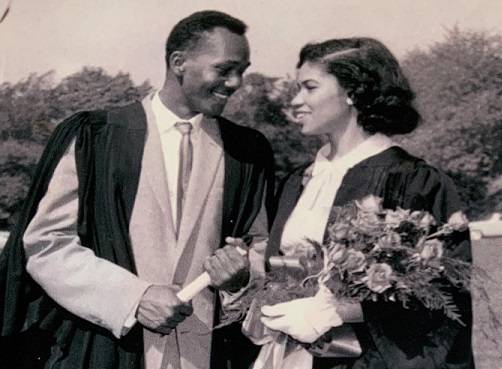Economics touches every aspect of society. This is no less true in February, designated as Black History Month, or more recently, as Black Heritage Month. Whichever the preferred name of the observance, Black economists, both historical and contemporary, are major figures in the discipline.
Contemporary

Names of thirty-two Black economists populated a non-exhaustive list of contemporary, influential Black African practitioners provided by Marlène Koffi, Assistant Professor with the Department of Economics. Accomplishments of the group include senior appointments to the Center for Global Development, the World Bank, and one served a term as a head of state. They also represent academic appointments at the world’s most prominent universities, including three at the University of Toronto.
Koffi herself joined the University of Toronto in 2020. Her research interests are broadly concerned with the Economics of Innovation and Science with a more specialized focus on equity issues that is evident in both her scholarly publications and her editorial contributions to media outlets like the Globe and Mail and the Hill Times. She also examines the application of deep learning, machine learning and Artificial Intelligence techniques to both research studies and to the creation of public policies. To that end, she is affiliated with National Bureau of Economic Research, the Schwartz Reisman Institute for Technology and Society, and the Forward Society (FOS) Lab.

Professor Ismael Mourifié has been a member of the Department of Economics since 2013. Currently on-leave at Washington University at St. Louis, he has remained active at UofT initiating (with Professor Linbo Wang) a program with the Data Science Institute that brings together data-science and causal inference to support the development of policy recommendations. Mourifié is well-known for his contributions to the sub-field of econometrics. He won the Denis Sargan Econometrics Prize, 2017 and is a fellow of the Econometric Society, serving as a voting member on the Africa Standing Committee. A past winner of the Polanyi Prize for Economics, Mourifié is a Research Associate with NBER, and Associate Editor at Journal of Econometrics, Journal of Business and Economic Statistics, and Annals of Economics and Statistics.
Moussa Blimpo, formerly Senior Economist in the Office of the Chief Economist for the Africa Region at the World Bank, is now an Assistant Professor at the Munk School of Global Affairs & Public Policy here at UofT. His research has included issues in education, infrastructure, and taxation in developing economies. He serves as a member of the Intellectual Leadership Team of the Research on Improving Systems of Education (RISE) Programme. Blimpo has also led research teams to study electricity access and digital development in Africa. He serves as a faculty affiliate of the Abdul Latif Jameel Poverty Action Lab (J-PAL) at MIT, one of the best-known poverty alleviation laboratories in the world.
Historical

The influence of Black economists on the discipline is not a contemporary phenomenon, but efforts to curtail that influence are in evidence. Sadie Alexander, who earned her PhD in 1921, is regarded as the first African American economist. The white establishment barred her from academic appointments for both her race and gender. She responded by becoming an attorney. Based on series of searches and inquiries, there does not yet appear to be a historical figure celebrated as the first Black Canadian to achieve a PhD in Economics or the first to become a full Professor of Economics. UofT, however, does celebrate early trailblazers among its alumni like Victor Callender and Dorel Hay-Callender.
Conditions may be improving. Professor Shari Eli identified five Black economists whose work is invested in uncovering the who, what and whys that moving forward, ensures the field of Economics communicates a more inclusive picture of economic experience throughout history.
Ellora Derenoncourt is currently Assistant Professor at Princeton University. Her work in Economic History examines the racial wealth gap in the United States from the Civil War to current times.
Trevon Logan is a Professor of Economics at Ohio State University. He developed a series of living standards measures and applied them to historical and present contexts “to directly assess the question of how the human condition has changed over time.”
Lisa Cook, Professor of Economics and International Relations at Michigan State University shares her expertise across many aspects of the field. Her historical analysis includes examinations of rural segregation and its affect on racial violence.
Jamein Cunningham is Assistant Professor at the University of Texas, Austin. His historical analysis looks at civil rights, racial segregation, and the role of legal services from the 1960s onward.
Ebonya Washington is the Laurans A. and Arlene Mendelson Professor of Economics and Professor of International and Public Affairs at Columbia University. Her research methodologies pioneered several economic measurements of discrimination.
Washington serves as Co-Chair of the Committee on the Status of Minority Groups in the Economics Profession convened by the American Economic Association, a position that suggests the barriers faced by Sadie Alexander have not been eliminated.
Return to the Department of Economics website.
Scroll more news.
